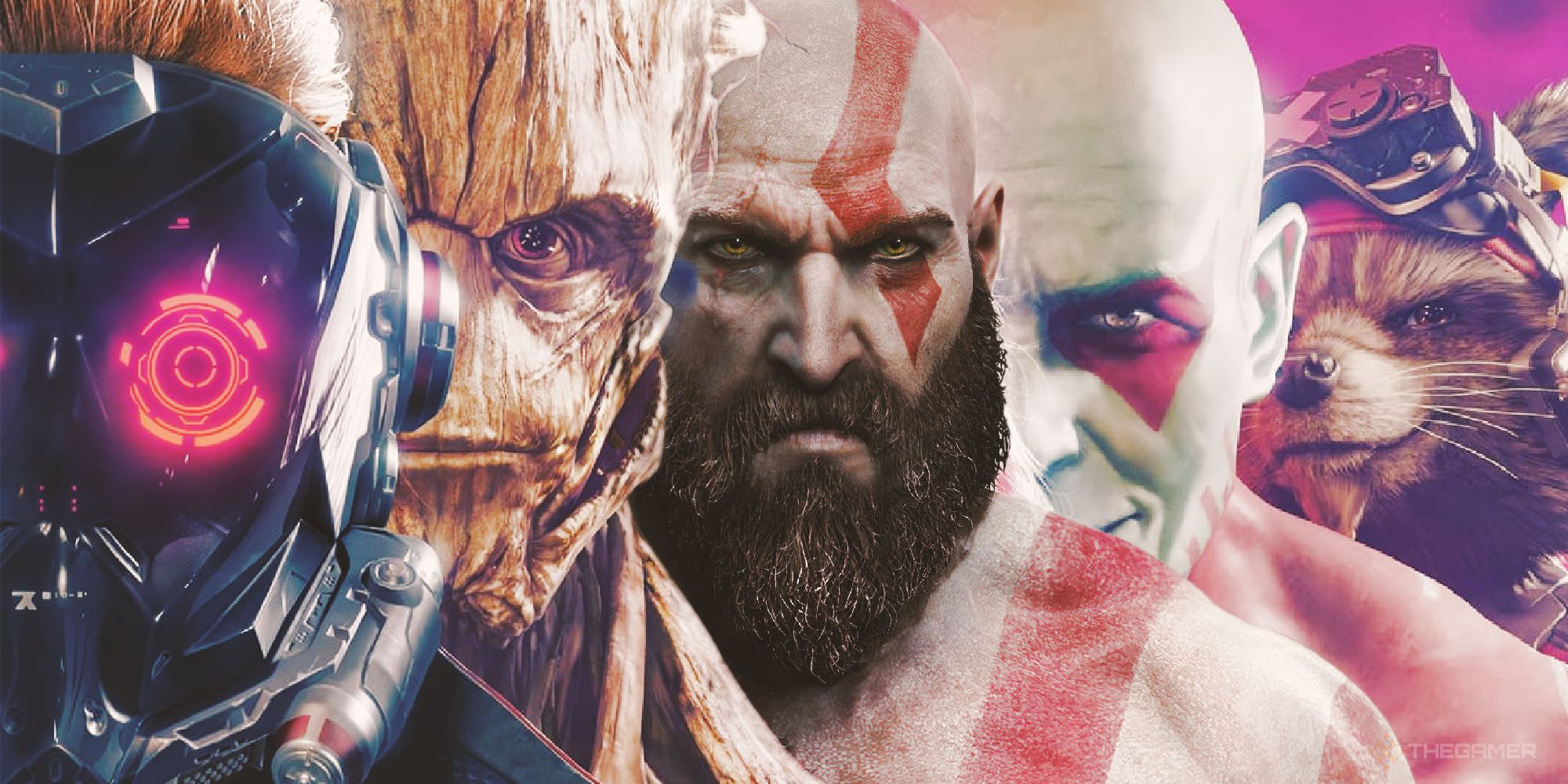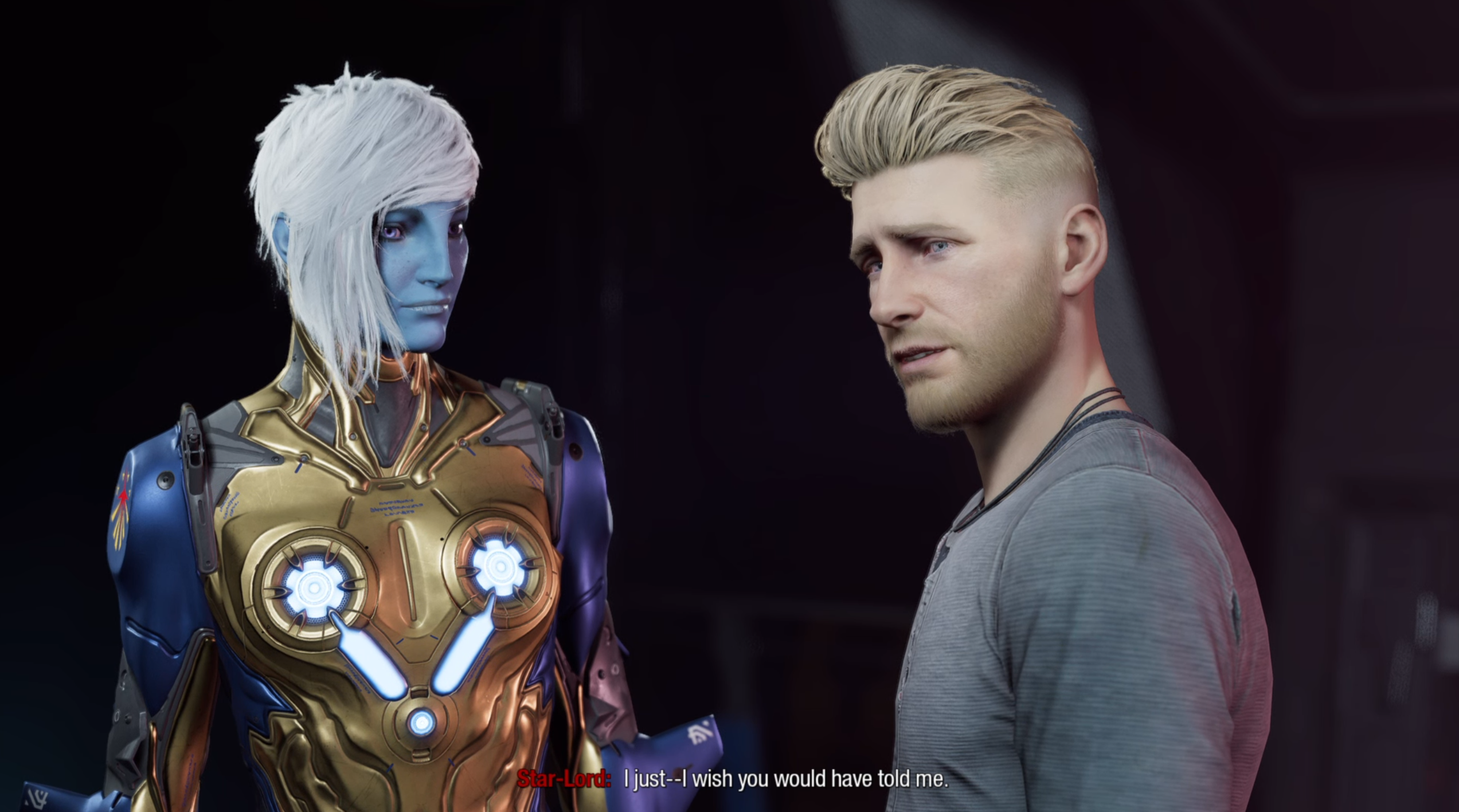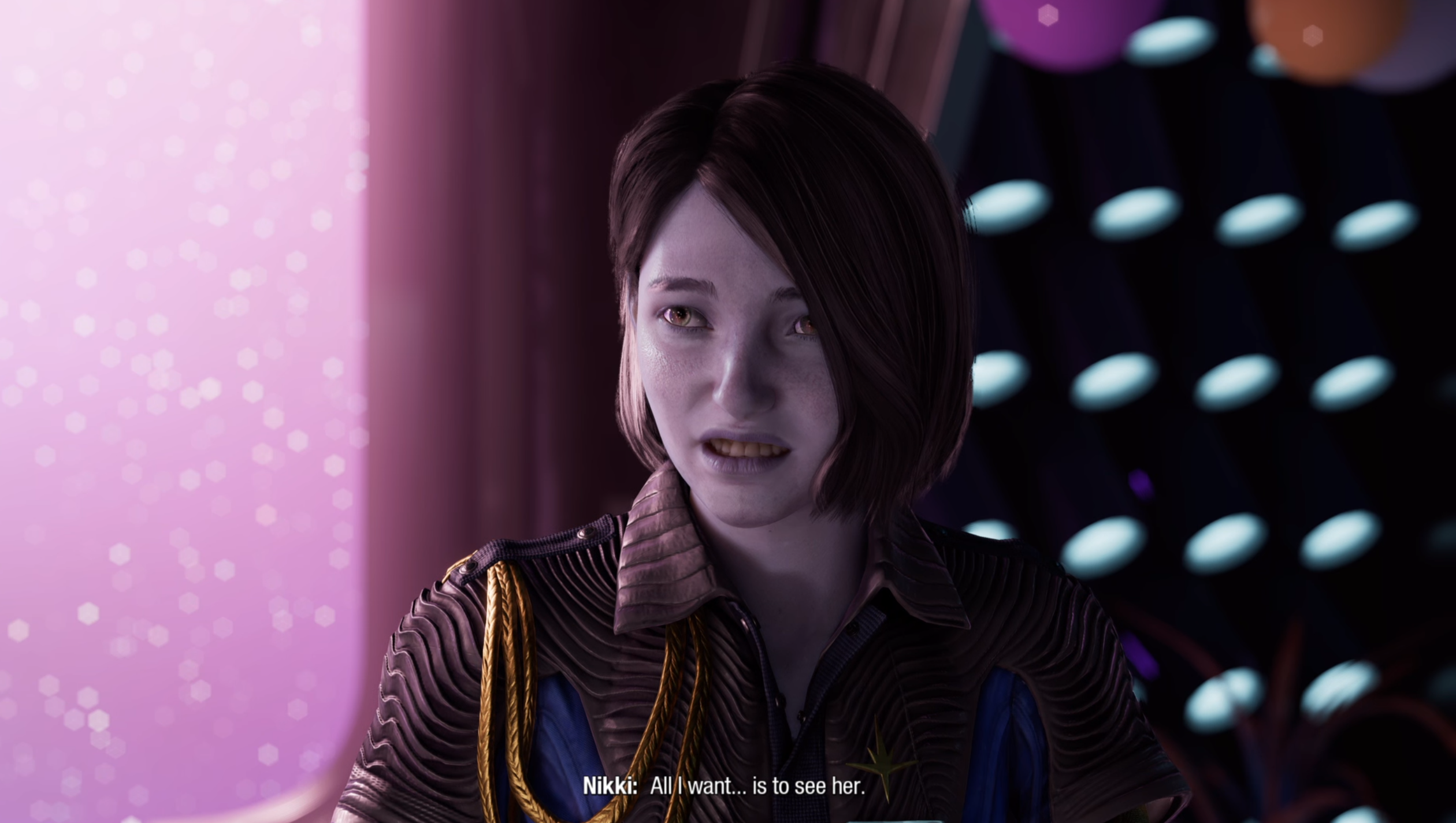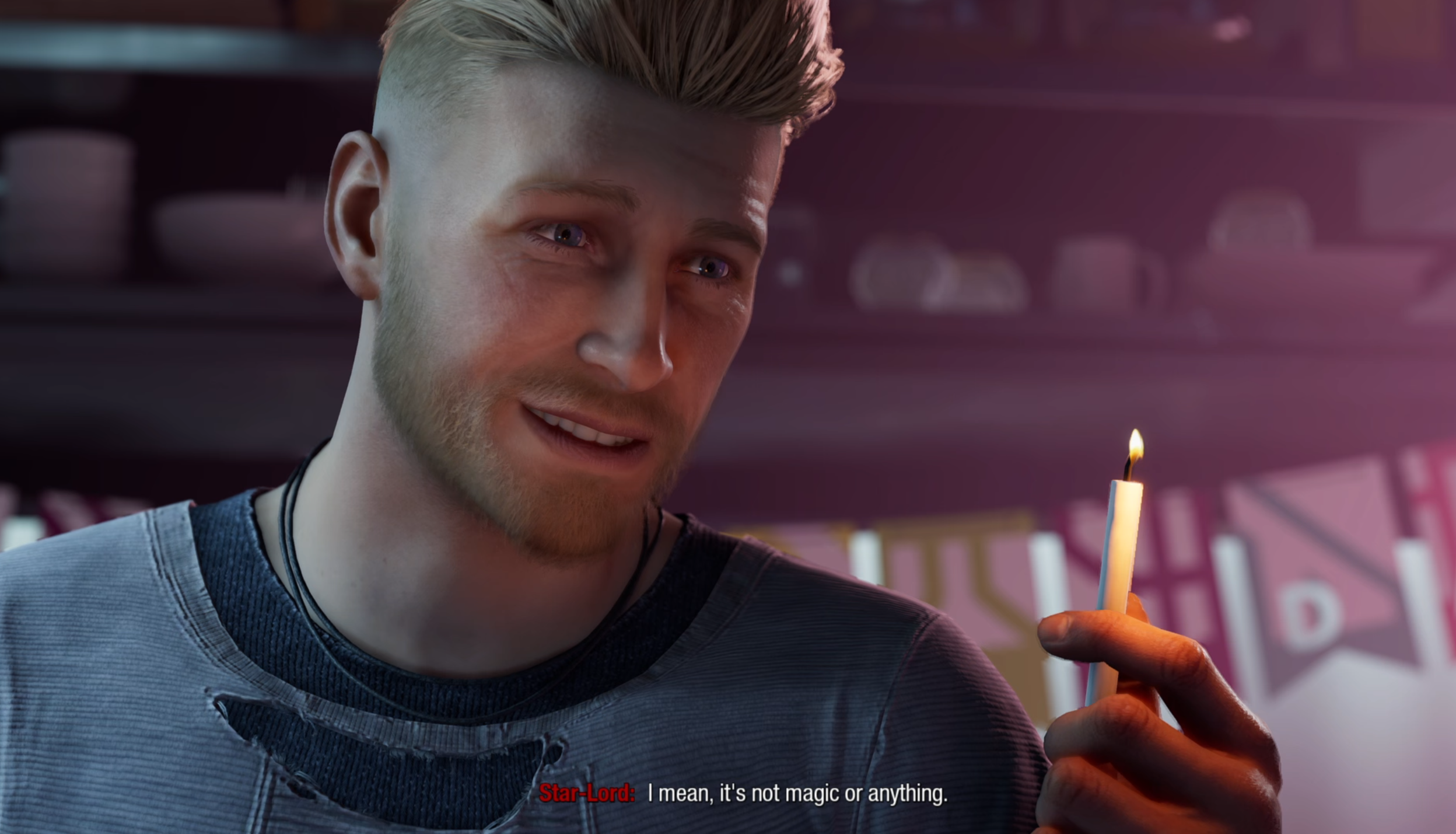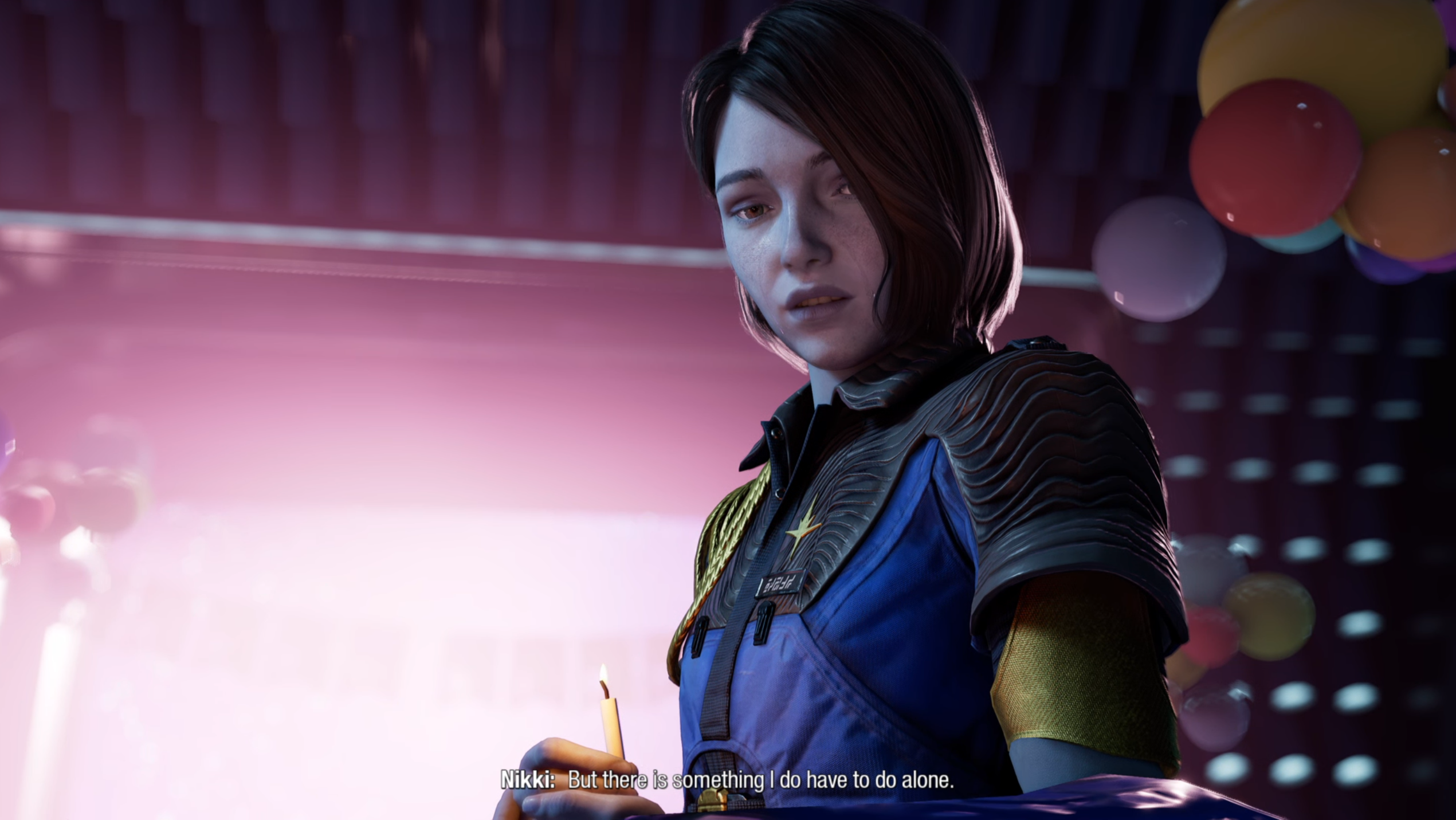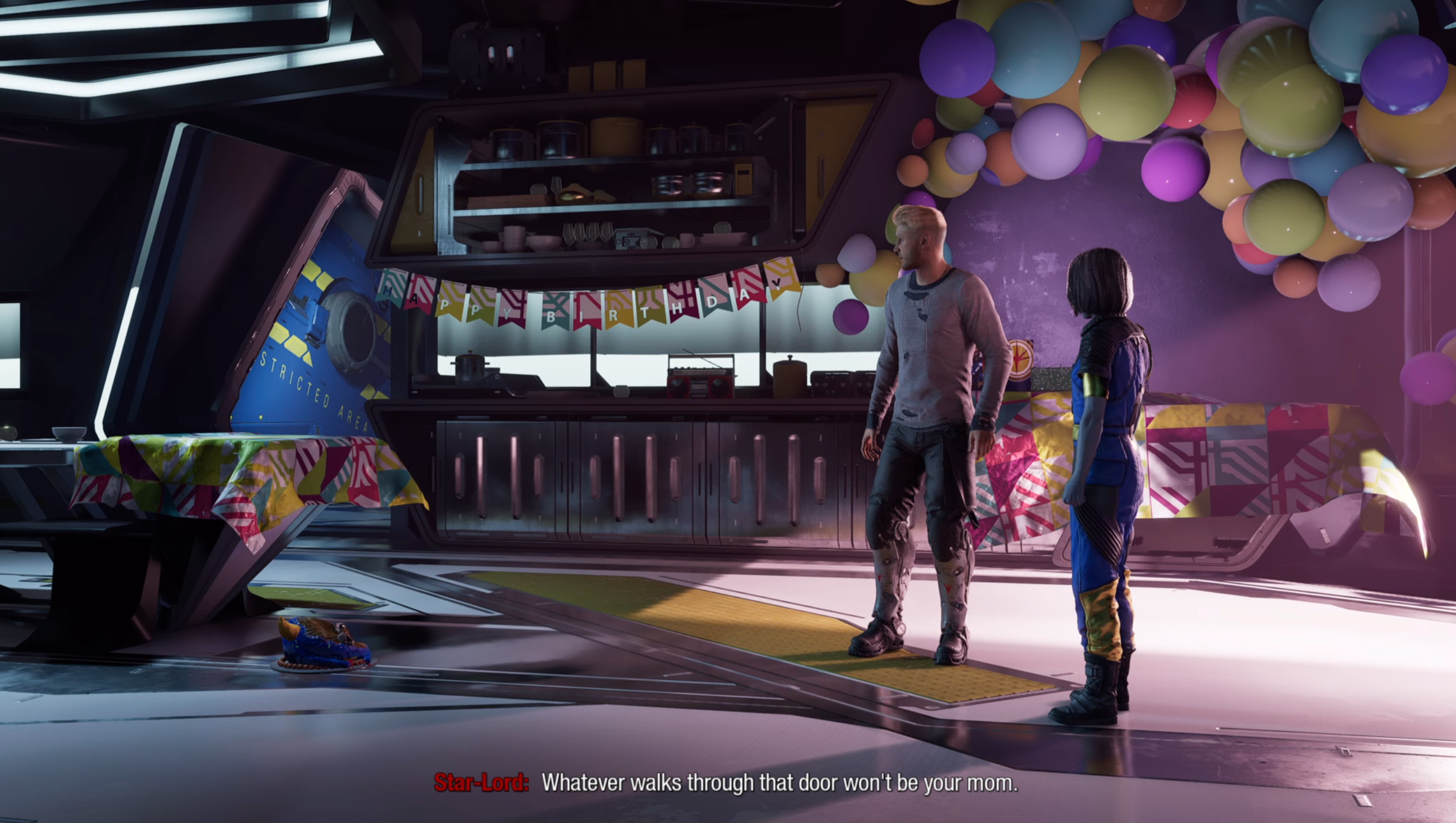Eidos Montreal’s Guardians of the Galaxy was such a lovely surprise. Like many, I had written the game off before its release thanks to the mediocrity of Marvel’s Avengers. It felt like the licence had already outstayed its welcome, but this charming interpretation of the galaxy’s greatest superhero team managed to subvert my expectations and become one of last year’s brightest sparks.
That’s largely because it isn’t afraid to take these characters and try something new with them. Upon first glance the visual comparisons to the Marvel Cinematic Universe are painfully obvious, but once you start playing, it becomes clear that this game intends to go far deeper than the films ever could. No longer the Star-Lord show, instead each member of the crew is given equal footing with their own distinct struggles, motivations, and a comprehensive arc that seeks to make them matter.
The team doesn’t fully gel until the final act, putting aside their constant bickering in favour of saving the galaxy and recognising that they really do love each other, and their evident differences are exactly what make them so powerful. Rocket conquers his traumatic fear of water, while Drax has become more understanding of symbolism and sarcasm after putting aside his own grief. Gamora wants to save those under her care due to past failures, not wanting others to suffer from the cycle of abuse she went through.
Groot is Groot - but he’s supportive of everyone so his lack of a meaningful storyline doesn’t really matter. Star-Lord is the facilitator of this progress, even if his own backstory is defined by a sense of loss that his cheery disposition rarely allows to bubble to the surface. When it does, he doesn’t hide it with Chris Pratt-esque smartassery and an unwillingness to take anything seriously. He’s honest, poignant, and manages to convince those around him of their inherent value even when all seems fruitless. He’s such a great character and one moment in the latter hours showcases this brilliance more than any other.
Major spoilers for the game’s story follow
The final few chapters follow the Guardians as they attack the Sacrosanct alongside Lady Hellbender, seeking to put a stop to The Promise and defeat Raker once and for all. For a moment it seems like we’ve lost, unable to prevent the galaxy from falling into the clutches of a false promise that will doom it to servitude. Until suddenly, Star-Lord reaches into the mind of Nikki, inhabiting his supposed daughter’s promise as the father she desperately wants him to be. His objective is to crush her dreams, making it clear her mother is dead and never coming back.
It’s an impossible situation, one that will force Peter Quill to become a symbol of mournful hate to the one person in the universe he wants to protect. The sequence follows Nikki as she prepares a surprise party for her mother. Everything is perfect, right down to the candles on her quirky birthday cake. You’re asked to help out, fetching a present from the other room while ensuring all of the decorations are in order. This scene is played out earlier in the campaign, but now Star-Lord is scrambling to get Nikki’s attention, to convince her this illusion isn’t real and her mother is never going to step through the front door to greet her.
Star-Lord doesn’t want to be the bad guy here, but he doesn’t have a choice, and could easily turn into a spiteful asshole to get what he wants from this little girl. He approaches the door, being met by a spectre of the late Ko-Rel as he begs for her help, making it clear what’s at stake and how Nikki needs to understand the grief that is slowly consuming her. But she can’t help, she’s gone, and even our hero has trouble accepting that ultimatum as it’s thrust upon him. He doesn’t want to do this alone - and maybe he can’t. He’s too afraid he won’t be the father figure that Nikki deserves in a world that has taken everything from her.
There’s a profound sense of inner turmoil here, and something that isn’t manifested through the mopey indifference you’d see from Joel or Kratos. It’s more optimistic, and as we follow Star-Lord back into the living quarters where he must face the music, we’re right there along with him as the unavoidable truth comes out. This scene goes so damn hard. Nikki screams and shouts, begging to see the mother she never had a chance to say goodbye to one more time before she’s thrown back into the real world and made to live a life without her. Her grief breaks my heart, since in reality we’ll resort to irrational fantasies to avoid staring down the truth that tries so damn hard to destroy us. Without a guiding light, Nikki was walking down this path, but Star-Lord steps in and makes her see that all isn’t lost, and even without her mother, there’s a life worth living and a galaxy worth saving.
Our hero illustrates this point by picking up one of the birthday candles, lighting it and describing how it is often seen as a means of tribute back on Earth, a way of honouring the memories of those we’ve lost and promising to move forward and better ourselves. Grown men and women struggle to confront the truth in this way, let alone a little girl who was raised on the fringes of the galaxy. Star-Lord connects with this grief, and even when he cracks a joke, it doesn’t ruin the mood like characters in the MCU or lessen drama purely for the sake of comic relief.
It’s who he is, and how he copes with emotions that he’s far from qualified to explore. Yet he comes through for Nikki, cementing his love for her and showing that even with her mother passing away, there is family out there. We bring her back from the brink in a scene that is easily the game’s best, an encapsulation of what it means to be a Guardian of the Galaxy. You can save the system from ruin, but if you aren’t there to pick up the little guy and dust them off, then it’s all for nothing.
The past generation has seen many fatherly characters like this emerge, with a number of designers growing older and having children of their own. God of War and The Last of Us focus on the troubled bond between parent and child, examining the trials and tribulations from a perspective that remains emotionally compelling, but has been explored to such an extent that now it feels like a hapless cliche. Guardians could have occupied this space so easily, but it subverts it beautifully.
Star-Lord spends most of the game dealing with the idea that Nikki is his daughter, and how he’s failed to be there for a child he didn’t even know existed. He jokes with his crew and has a few breakdowns in the bedroom mirror, but he always views this responsibility with a positive attitude. If he’s a daddy now, he can suck it up and be the best person he can be. His daughter won’t become a punching bag for his own trauma like Ellie or Atreus, but a person brought into this world by their own volition who should be treated as the individual they rightfully are.
The duo don’t even spend much time together in the grand scheme of things, but all of their scenes are so perfect that it doesn’t matter. We need more games like this that treat fatherhood as the privilege it is capable of being, instead of lining it with an aura of toxic masculinity that children are almost a burden to behold. If we see a sequel to this game, I hope the relationship between Star-Lord and Nikki grows even stronger, and maybe even throw in another schmaltzy candle scene while you’re at it.

